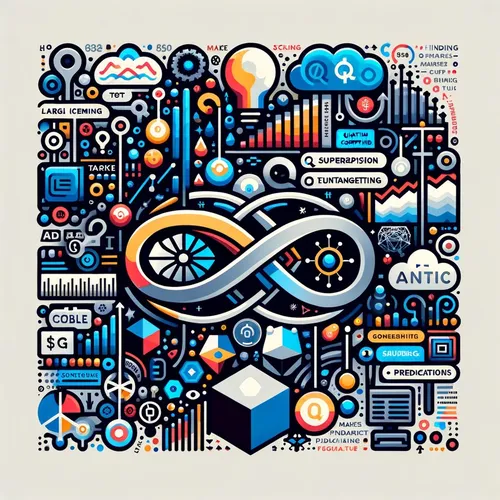Quantum Leap: Cloud Computers Revolutionize Drug Discovery and Healthcare
- Author
- Quiet. Please
- Published
- Mon 01 Sep 2025
- Episode Link
- https://www.spreaker.com/episode/quantum-leap-cloud-computers-revolutionize-drug-discovery-and-healthcare--67583962
This is your Quantum Market Watch podcast.
It’s September 1st, 2025—this is Leo, your principal quantum computing correspondent, and I’ll skip the preamble because something truly significant has just unfolded in healthcare. The QCDC project has wrapped in Europe, and for the first time, researchers gained unprecedented access to cloud-based trapped-ion quantum computers on the continent. This isn’t just technical progress; it’s the onset of a new age for medical science.
Imagine walking into a biomedical lab today: you’d hear the humming of classical computers, the urgency in the click of data analysis, but now there’s a new tone—a near-silent chamber, cooled to near absolute zero, where quantum processors manipulate ions with laser pulses. It is in this realm that researchers have, just this past week, achieved a breakthrough that distinctly marks the future of drug discovery. Using these cloud-accessible quantum machines, scientists successfully simulated complex biochemical interactions—molecule by molecule—in ways that not even today’s fastest supercomputers could hope to tackle.
Why does this matter? In the classical world, simulating even a small protein’s folding process can be more complicated than predicting the weather for a year. But quantum computers, harnessing the eerie superposition and entanglement that define our universe at its smallest scales, can model these molecular systems with breathtaking efficiency. The VQE algorithm—Variational Quantum Eigensolver—was leveraged to tune molecular states and rapidly identify low-energy configurations, fundamentally altering our approach to finding new drugs or analyzing disease pathways. What used to take months, or years, on giant supercomputers can now be done in days, if not hours.
Dr. Juris Ulmanis from AQT, the project’s lead, made it plain: “By giving scientists access to AQT’s world-class quantum technology, we’ve enabled them to solve problems that were previously out of reach.” In other words, the biotech and pharmaceutical industries just got a powerful new tool—not only to refine existing medications but to design bespoke therapies that fit an individual’s genetics, their quantum signature if you will.
As a quantum physicist, I see direct parallels here: just as a quantum system can exist in many states until observed, the future of healthcare now sits in a broad superposition of possibilities. It’s simultaneously more efficient, more precise, and more personal—all thanks to a leap in how we process and understand fundamental information.
And this is only the beginning. Quantum-driven advancements are already reshaping medical diagnostics, material science, and even the optimization of hospital logistics, as highlighted by this week’s developments at both the QCE25 conference and the QCDC project’s closure.
Thank you for joining me on Quantum Market Watch. If you’ve got questions, comments, or a burning topic for our next episode, shoot an email to [email protected]. Be sure to subscribe so you don’t miss the next quantum leap. This has been a Quiet Please Production—for more, visit quietplease.ai.
For more http://www.quietplease.ai
Get the best deals https://amzn.to/3ODvOta
